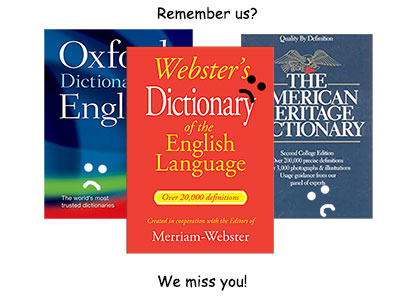
A few years back I wrote a post for our blog called “How Best to Use Editing Services.” In it I described how to make best use of your money when you pay for editing services. An important task is, of course, thoroughly proofreading your own work before sending it on to the paid professional. You want to get the most bang for your buck by making sure to send in as clear and error-free a document as you can produce, leaving the harder stuff to the professionals.
Get a free sample proofread and edit for your English document.
Two professional proofreaders will proofread and edit your English document.
But how can the average writer best review their own work? In today’s post and an upcoming part II post next month, I’ll briefly describe some of the most common errors you should look out for in your writing and I will provide links to excellent ProofreadingPal blog posts from the past for more details on each of these errors.
Apostrophes
Punctuation errors are quite common in writing, and apostrophe use seems to be especially difficult for many: When should you use “its” or “it’s” and “is the Jones’s dog “or “the Jones’ dog” right? The most basic rules for apostrophes are:
ProofreadingPal’s blog posts “Really Tricky Apostrophe Rules” and “Apostrophes with Singular and Plural Nouns” are excellent sources for more detail.
Commas
Commas also present many possible punctuation problems. They are more often overused than underused, so keep that in mind as you make sure you are using them in the following positions:
The post “How to Avoid Comma Errors” provides details about comma use and the post “Avoiding Comma Errors II” discusses some of the finer points, and “Guide to Commas, Dashes, and Parentheses” provides an overview of comma use and includes bonus material on dashes and parentheses.
Capitalization
Also tending to be overdone rather than underdone is capitalization. Here’s where you need capital letters:
Titles of works can cause some problems because there’s a little variation on what words in a title get capitalized, but basically you’ve got to remember to capitalize the first and last words and all other words except conjunctions (and, or, nor, yet, but), prepositions (e.g., for, over, up, on), and articles (a, an, and the). AP and APA go a little further to require words in these classes to be capitalized if they four or more letters long (like “because”). More details on capitalization can be found in “Avoiding Common Capitalization Errors” and “Capitalization in APA, MLA, Chicago, and AP.”
If you are unsure about whether an individual word is supposed to be capitalized when used within a sentence, this might seen a little obvious, but looking it up in the dictionary will generally reveal the answer.

Finally, as with most things writing, there’s another layer of detail below the details. (I love it!) Check out “How to Capitalize Disease Names” and “How to Capitalize Medicine.”
Carefully looking at your own writing or meeting with a tutor/writing coach can help reveal the types of errors you tend to make. Perhaps punctuation and capitalization, discussed in this post, are major issues for you, or perhaps other things cause you more difficulty. In next month’s post, I’ll discuss three additional common errors to avoid making in your writing: run-on sentences, incorrect words, and subject-verb agreement. In the meantime, taking some time to understand yourself better as a writer can really help boost your potential with written communication.
Sarah P.
Get a free sample proofread and edit for your English document.
Two professional proofreaders will proofread and edit your English document.
Get a free sample proofread and edit for your document.
Two professional proofreaders will proofread and edit your document.
We will get your free sample back in three to six hours!